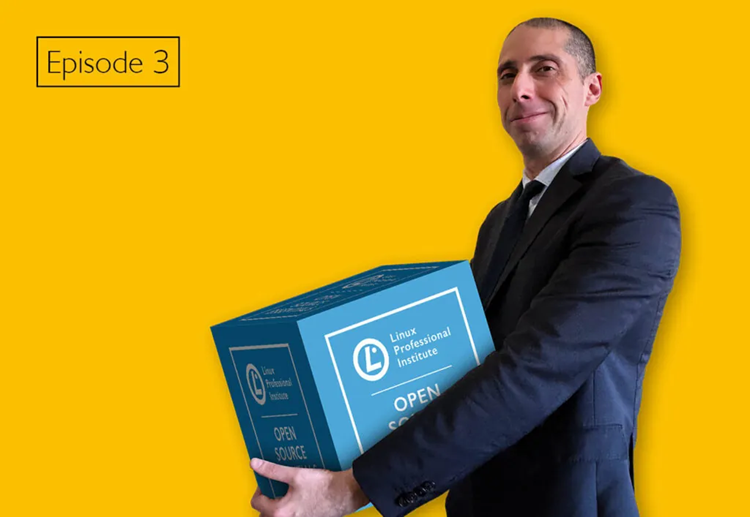Among the objectives for the new Linux Professional Institute (LPI) Open Source Essentials certificate, the candidate has to deal with legal aspects of developing and using open source software in a professional environment. These aspects include license compliance, legal compliance, asset protection, privacy law, and more. In this article, Andrea Palumbo, lawyer, helps us understand more about those topics.
The emerging prominence of open source software development in the 1990s heralded a paradigm shift across the computing spectrum, profoundly affecting coders, vendors, and legal regulators alike. This revolution extended beyond mere coding practices to challenge and redefine the traditional commercial and legal frameworks of software distribution. Open source licenses, as legal instruments, emerged as pivotal in governing the use, modification, and sharing of software. Such licenses underlie the infrastructure of today’s digital services, from cloud computing solutions to essential daily applications. This evolution signifies the crucial role of open-source software in laying the foundational elements of our modern digital ecosystem, making it a subject of both technological and legal significance.
Until the late 1980s, the market was dominated by a proprietary approach, with the application of so-called closed source licenses to most software, and where free software licenses represented more of a beautiful dream than a real alternative (with a few but significant exceptions). The advent of open source software changed the rules of the game.
The new legal approach that emerged in the software development scene, which by the dawn of the new millennium had established itself as a concrete reality, was primarily the assertion of a principle: that the writing, dissemination, modification, and reuse of code should be subject to rules that are not exclusively protective. Instead, these rules should allow access and utilization by others, ensuring that the benefit derived by the public (and the author themselves) from the sharing of creative works not be hindered. This concept challenges traditional views on intellectual property rights.
The era of Free Culture, as defined by Lawrence Lessig, begins here – at least regarding software. This concept promotes a “free culture” that:
“…supports and protects creators and innovators. It does this directly by granting intellectual property rights. But it does so indirectly by limiting the reach of those rights, to guarantee that follow-on creators and innovators remain as free as possible from the control of the past. A free culture is not a culture without property, just as a free market is not a market in which everything is free.” [Lawrence Lessig, Free Culture, Penguin Press, New York, 2004, p. 5.]
Free and open source licenses serve as the legal framework enabling the adaptation of law to meet the evolving demands of technology and culture. These licenses facilitate the sharing, modification, and distribution of software code, aligning with the shifting paradigms in technology use and development. Understanding the intricacies of these licenses is crucial, as they dictate how software can be used, shared, and built upon, ensuring that the legal code supports the dynamic nature of software creation and innovation.
The Significance of Open Source Licenses for Software Developers and Their Managers
While the genesis of the open source movement and the consequent development of its licenses are well documented, it’s more complex to elucidate how the rules governing the use, distribution, and modification of software are linked to software development. Open source licensing rules should be well-understood and should inform the decisions of creators throughout all stages of coding and designing software services.
Some might suggest that licenses are merely legal formalities to be addressed by legal experts after the main development process. Yet this perspective overlooks the profound impact of legal frameworks on technological development and innovation. Open source licenses exemplify the fusion of legal and technical domains, making decisions about code accessibility and collaborative conditions integral to the development cycle. These licenses highlight the essential role of legal considerations in technological advancements, refuting the notion of a divide between legal obligations and technical endeavors. Open source licensing demands that developers consider legal implications from the outset, ensuring that their decisions on sharing and improving code align with broader legal and ethical standards. The impact of the licenses underscores the intertwined nature of law and technology in fostering innovation.
Software developers must also know whether the code they modify or reuse, or the libraries they integrate into their services, can be freely used. Restrictions in the license could impose limitations on their software. These limitations can range from a simple obligation to credit the original author to more stringent restrictions on redistribution, such as those imposed by GPL licenses. Developers must also consider if the license they want to apply to their software is compatible with the original software’s license and if they wish to release their software under a dual licensing model.
Hence, this decision is not merely a legal one, but also involves business model choices, technical decisions, and ethical considerations.
What Aspects Commonly Govern Open Source Licenses, and Why You Should Study Them
The landscape of Open Source licenses is diverse and extensive, ranging from “strong copyleft” licenses like GPL to “weak copyleft” ones such as LGPL and MPL, and even “permissive” licenses like BSD or Apache 2.0. Each of these licenses governs differently and to varying degrees the rights of the public to:
- View the software’s source code
- Use the software’s source code
- Modify and create derivative works from the software’s source code
- Distribute and share of the software’s source code, both in its original version and in derived works
These rights are complex for both the original author and those of derivative works to manage. However, this cannot be an excuse for failing to understand them.
In the constantly evolving digital realm, the decision-making process on software licensing must include the programmers themselves, as legal considerations increasingly influence software development. This mutual impact underscores the necessity of understanding and integrating legal frameworks from the inception of coding to avoid market disadvantages.
Source: lpi.org




0 comments:
Post a Comment